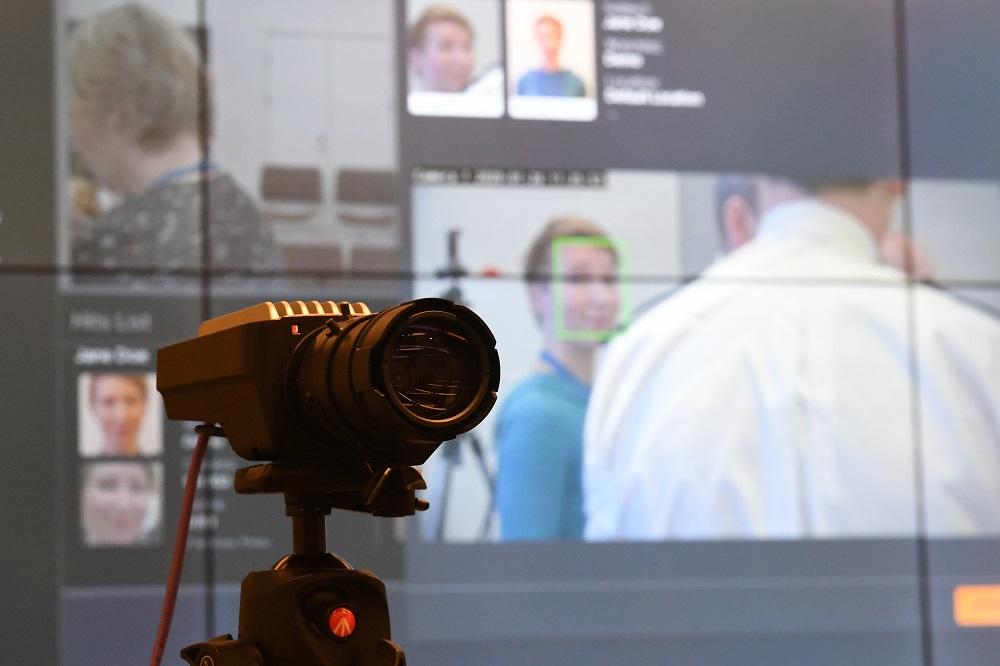Police widening use of live facial scanning with no clear legal grounds – peers

Police use of live facial recognition surveillance is being expanded without clear legal grounds, peers have warned.
The Lords’ Justice and Home Affairs Committee has called into question the lawfulness of the deployment of the technology by forces across England and Wales.
In a letter to Home Secretary James Cleverly published on Saturday, the committee has called for tightened regulation and independent scrutiny of how the equipment is used.
Live facial recognition (LFR) cameras are used by police in some areas to analyse the faces of passersby and search for specific people.
‘Deeply concerned’
The committee said it acknowledged the technology may be a valuable tool in catching criminals but that it was “deeply concerned that its use is being expanded without proper scrutiny and accountability”.
There are “no rigorous standards or systems of regulation” in place for the deployment of LFR and “no consistency” in approaches to training officers in its use, peers said.
Baroness Hamwee, chairwoman of the committee, said: “Does the use of LFR have a basis in law? Is it actually legal? It is essential that the public trusts LFR and how it is used.
“It is fundamental that the legal basis is clear. Current regulation is not sufficient. Oversight is inadequate.
“Technology is developing so fast that regulation must be future-proofed. Police forces may soon be able to link LFR cameras to trawl large populations, such as Greater London, and not just specific localities.
“We are an outlier as a democratic state in the speed at which we are applying this technology. We question why there is such disparity between the approach in England and Wales and other democratic states in the regulation of LFR.”
Privacy campaigners and politicians have previously called for police to stop using facial scanning technology, citing concerns over human rights and potential for discrimination.
Civil liberties group Big Brother Watch has branded the tool “Orwellian” and suggested that any widening of its use would lack a clear democratic mandate.
But the Government last year announced it was considering expanding its use of the surveillance across forces and security agencies.
Complex investigations
The Home Office argues that the technology frees up officers to spend more time out on the beat and working on complex investigations.
The National Police Chiefs’ Council said it welcomed the committee’s scrutiny and would consider its recommendations, but that LFR is always used “proportionately and transparently”.
Individual chief constables are also held to account by their police and crime commissioners and mayors who examine operational decisions on LFR, the council added.
NPCC lead for facial recognition and the Metropolitan Police’s director of intelligence Lindsey Chiswick said: “We welcome scrutiny in this area of work and will consider the recommendations closely.
“The High Court and the Court of Appeal have previously recognised the existing legal basis for the police to use (LFR) technology – namely under common law in the UK.
“LFR is a tool which helps police to identify wanted individuals and it is always used proportionately and transparently, with communities told when it will be deployed.”
Support our Nation today
For the price of a cup of coffee a month you can help us create an independent, not-for-profit, national news service for the people of Wales, by the people of Wales.






They should use it in Westminster where serial wrong doers operate with impunity…
Many in Cardiff cover their face with veils and balaclavas, particularly the drug dealers
The sooner that policing and justice become devolved issues the better, then such sinister developments can be outlawed. The argument that it frees up police time is just a ploy to weaken opposition to any moves to restrict and control the use of such technology. Already policing in the UK has moved way beyond the original concepts of the variety of policing first introduced by Robert Peel in 1829, which should inform the way policing is considered. Policing in the UK is first and foremost about preserving the peace, hence Heddlu in Cymraeg. It’s worrying that the police have gradually… Read more »
If I go to the police and ask for what data they hold on me, what will the answer be? Also trials and forced use in the US have shown it to be very racist. What is different here.
But then I see supermarkets are now filming you at the checkout.